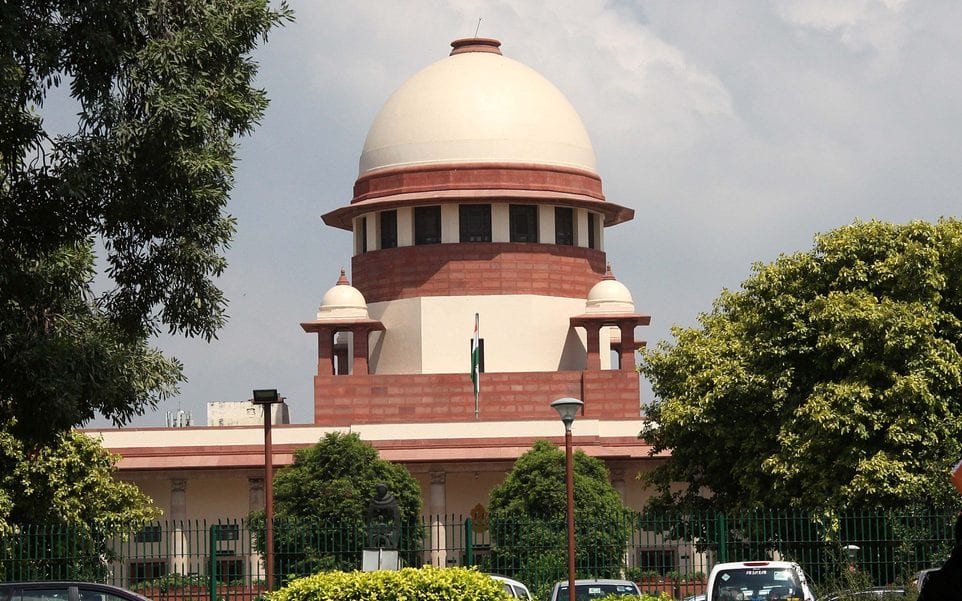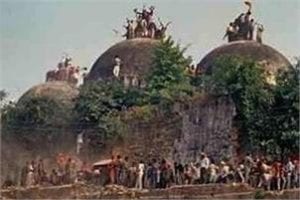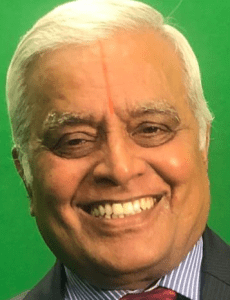
Ayodhya, Article 370, RTI: Key SC rulings India eagerly awaits
In less than two weeks, the Supreme Court is set to deliver judgements in as many as 10 sensitive cases, including the Ayodhya issue, the Sabarimala case, the dilution of Right to Information Act, the scrapping of Articles 370 and 35A, and the Rafale deal.

In less than two weeks, the Supreme Court is set to deliver judgements in as many as 10 sensitive cases, including the Ayodhya issue, the Sabarimala case, the dilution of Right to Information Act, the scrapping of Articles 370 and 35A, and the Rafale deal.
After the top court reopens on Monday (November 4), it is expected in all probability to pronounce judgements in two important cases by Friday (November 8) — the Sabarimala and the RTI Act dilution cases. It is also being speculated that the court will deliver its Ayodhya verdict on November 13.
Chief Justice Ranjan Gogoi, who heard the case with his Constitutional bench without a break, for over 40 days, had earlier said that he will deliver the judgment before he retires on November 17. The brother judges are now busy writing their judgements and none of the five justices have taken their Diwali holidays.
Also read | No leave for police officials in Madhya Pradesh ahead of Ayodhya verdict

The Intelligence Bureau (IB) issued ‘top secret’ circulars to the director generals of police of all state governments on Saturday (November 2), directing them to ensure proper protection of temples and mosques in almost all 755 districts in the country.
A meeting via video conferencing is also scheduled between the superintendents of police and the Union home ministry in the next two or three days. Elaborate arrangements are being made by the home ministry to set up a control room in the IB headquarters to monitor the law and order situation in the country till the end of November.
Also read | SC verdict on Ayodhya case should be accepted wholeheartedly: RSS
In its circulars, the IB has also expressed apprehensions that the spillover of the Ayodhya judgement will be more in the first week of December as it was on the sixth of this month that the Babri Masjid was demolished in 1992.
The BJP and the Congress, and regional parties like the BSP, the SP and the JDU have also begun to evaluate their strategies for the post-verdict period.
Prime Minister Narendra Modi had appealed to the citizens of India to maintain calm on the day of the Ayodhya judgment. RSS chief Mohan Bhagwat and Muslim clerics have also appealed to the people to maintain peace. The union cabinet is also expected to make a similar appeal in this regard.
November, the month of controversial judgements
The calendar of the Supreme Court for the first fortnight of November is blocked. All the working days are crossed with red marks in the diaries of the Registrar General, indicating the delivery of crucial judgements.
The entire staff of the top court, legal luminaries and senior media persons who had followed the case for the past decades are all having nail-biting moments.
‘Ayodhya ruling the most important in the world’
The Ayodhya verdict is “one of the most important” legal pronouncements in the world, said Justice Sharad Arvind Bobde, who is set to take over as the 47th Chief Justice of India this month after CJI Ranjan Gogoi retires. The 63-year-old Supreme Court judge is also part of the five-judge bench that heard the title suit in the decades-old politically sensitive temple-mosque dispute for over 40 days.
The verdict, in this case, is expected to come before November 17, the day CJI Gogoi is set to retire. Asked if it was a milestone in his career, Justice Bobde said, “Ayodhya case is definitely important. It is one of the most important in the world.”
Also read | Ayodhya: SC allows Muslim parties to bring on its record written note
The dispute over 2.77 acre of land in Ayodhya, which both Hindus and Muslims lay claim to, had been one of the key issues that dominated the political discourse since the eighties.
In 1992, right-wing activists from the BJP, RSS and VHP had razed a 16th-century mosque that they believed was built in place of a temple that marked the birthplace of the Lord Ram. In the riots that followed, more than 3,000 people were killed across the country.
Verdicts are also expected on petitions seeking review of the Supreme Court judgments allowing entry of women of all ages into Sabarimala temple, giving a clean chit to the government in the Rafale deal and a petition seeking to bring the CJI’s office under the ambit of the RTI Act.
Days ahead of what is going to be a landmark verdict, speculation is rife whether the five-judge bench will render a unanimous verdict.
Sabarimala case
A five-judge bench headed by CJI Gogoi had on February 6 reserved its verdict on 65 petitions, including 57 seeking review of the top court’s September 28, 2018 judgment allowing entry of women of all ages into the Sabarimala temple.
Also read | SC asks Kerala to move HC for Sabarimala entry modification
The petitioners had argued that since Lord Ayyappa at Sabarimala was a celibate, the court must not interfere with the tradition of barring entry of women in the menstrual age group of 10-50 years.
RTI Act
Another five-judge constitution bench headed by the CJI had reserved its verdict on April 4 on an appeal filed by the Supreme Court registry against a Delhi high court judgment, on a petition by activist Subhash Chandra Agrawal, allowing the CJI’s office to be brought under the ambit of the RTI Act.
Rafale case

The other high-voltage case pending before a three-judge bench headed by the CJI is the review petition challenging the top court’s decision last year that gave a clean chit to the NDA government on the purchase of 36 fully loaded Rafale fighter jets from France under an inter-governmental agreement.
The bench had on May 10 reserved its verdict on the petitions seeking a CBI inquiry into alleged corruption and irregularities in the deal.
Whichever perspective you look from, these legal scrutinies on various sensitive issues are certain to benefit the ruling BJP as most of its 2019 poll promises are now being fulfilled, especially on Ayodhya and the scrapping of 370.
This is what the BJP leaders in New Delhi shared with media persons.



